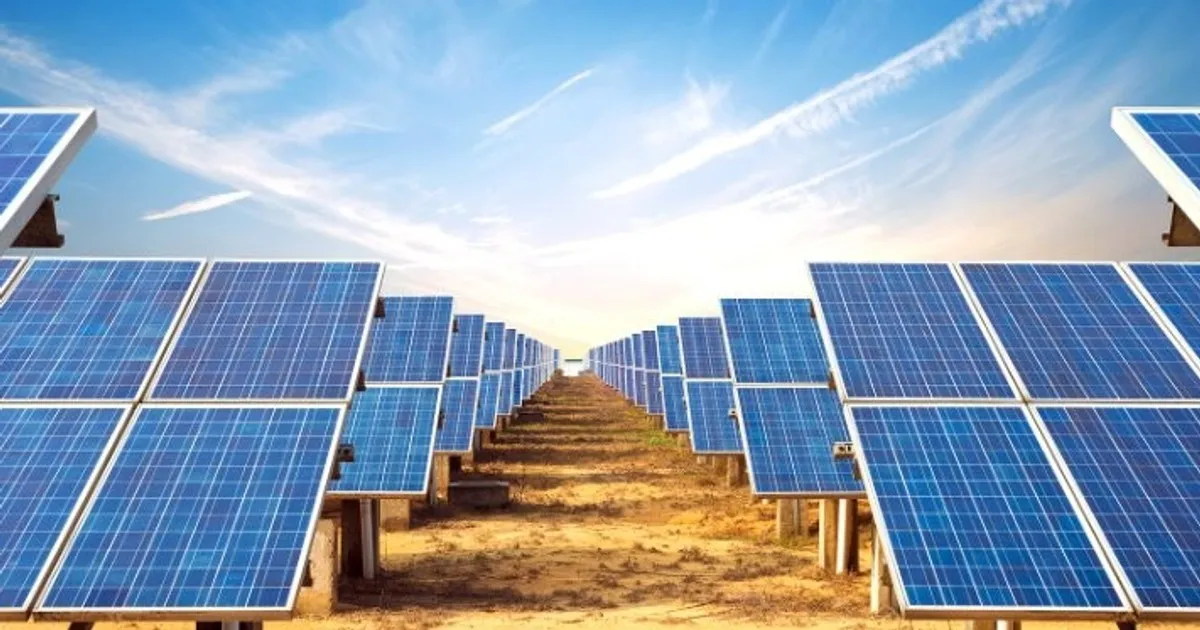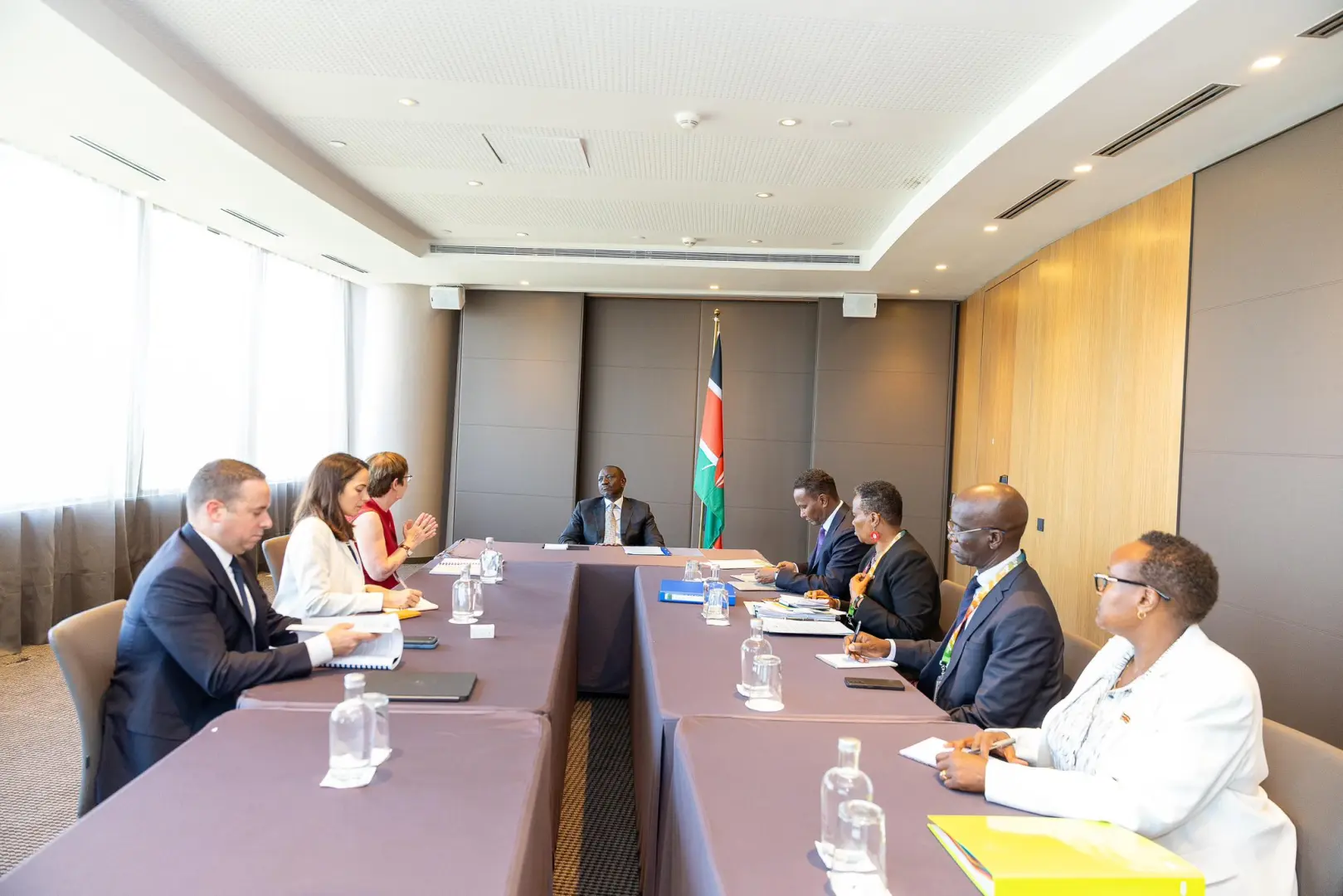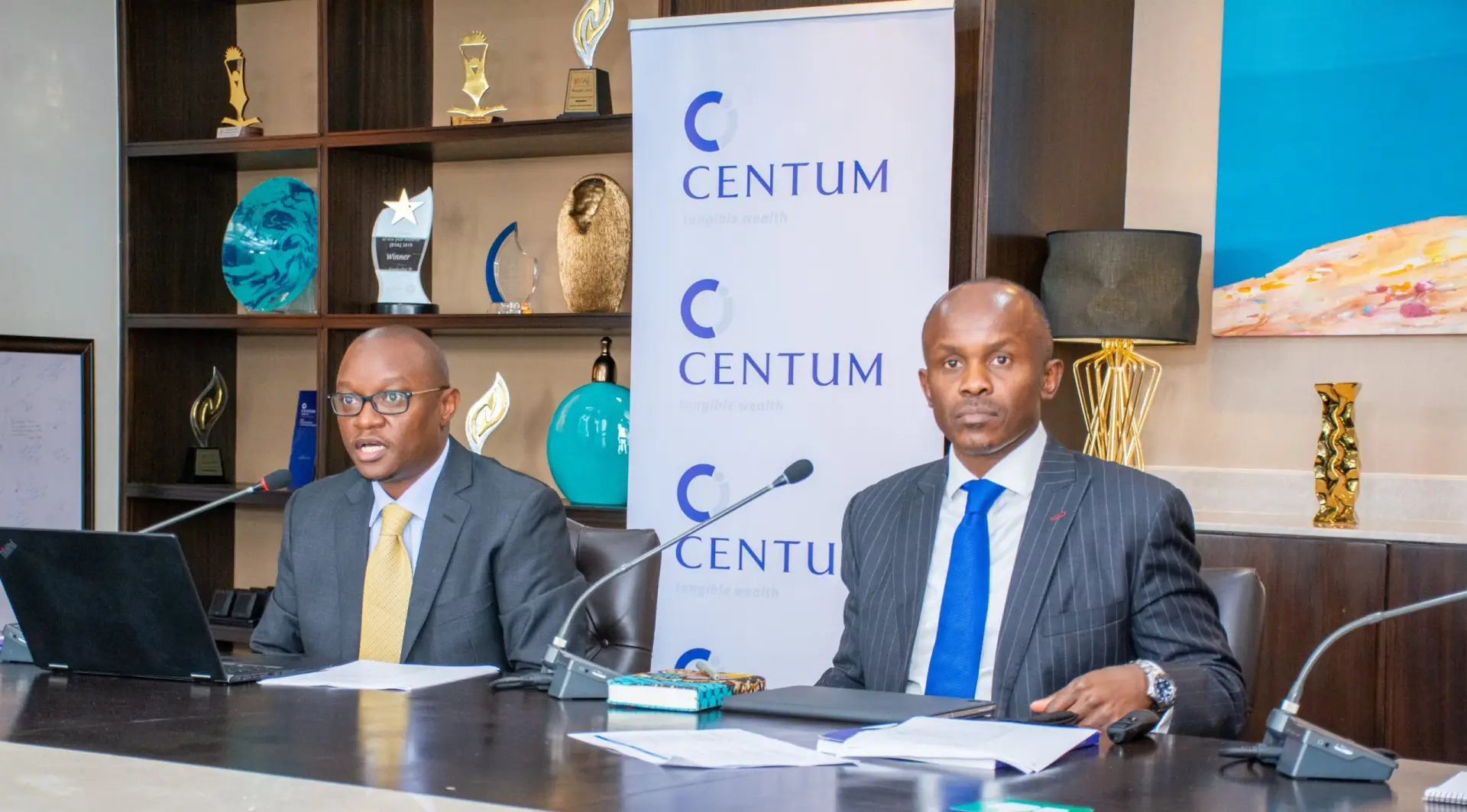In a bold stride toward a sustainable future, Kenya and Israel have signed a five-year Memorandum of Understanding (MoU) to collaborate on renewable energy development. The groundbreaking deal, inked by Energy and Petroleum Cabinet Secretary Opiyo Wandayi and Israel Ambassador to Kenya Michael Lotem, sets the stage for a strategic partnership aimed at enhancing human and technical capacity in the renewable energy sector. This initiative not only underscores Kenya’s commitment to a green energy transition but also leverages Israel’s cutting-edge expertise in renewable power storage, grid stabilisation, and advanced technology.
A Partnership with Purpose
The MoU between Kenya and Israel is designed to facilitate comprehensive cooperation in renewable energy technologies and capacity-building initiatives. Under the agreement, Israel has committed to providing extensive technical support and professional training that will empower Kenya to optimise its renewable energy production. This collaboration is expected to help Kenya address key challenges such as high transmission losses and inadequate energy storage while accelerating its transition to a greener power mix.
“We have established a framework through which we will collaborate to facilitate and encourage cooperation in the energy sector, share expertise in renewable energy resources development, and foster innovation to improve the reliability and quality of our distribution network,” said Cabinet Secretary Opiyo Wandayi. The deal embodies principles of impartiality, equality, and mutual benefit, making it a win-win arrangement for both nations.
Addressing Technical and Commercial Losses
One of the primary challenges in Kenya’s energy sector is the significant technical and commercial losses that occur in the transmission and distribution of electricity. The Energy and Petroleum Regulatory Authority (EPRA) recently reported that technical losses increased to 24.2% over the first six months of 2024—well above the international standard of 17.5%. These losses are attributed to outdated infrastructure and inefficiencies in the grid system.
Israel’s involvement in this partnership is strategically aimed at addressing these shortcomings. The country, renowned for its advancements in renewable power storage and grid stabilisation, will share its expertise to help Kenya minimise technical losses. This collaboration is expected to improve power output and enhance the stability of the grid, ensuring a more reliable supply of renewable energy across the country.
Kenya also faces commercial losses stemming from illegal connections, unmetered usage, and meter tampering. By collaborating with Israeli experts, the Kenyan government plans to implement state-of-the-art metering technology and monitoring systems that will help reduce these losses. The long-term goal is to create a more efficient, transparent energy market that encourages investment and supports sustainable development.
Capacity Building and Human Capital Development
A vital component of the MoU is the emphasis on capacity building. Recognising that technology alone cannot drive a sustainable energy future, the agreement places strong emphasis on human capital development. Israel will assist Kenya in setting up a Centre of Excellence for Energy, which will serve as a hub for technical training, research, and innovation. This centre is expected to be instrumental in nurturing the next generation of energy experts and ensuring that Kenya has the expertise required to manage and maintain its renewable energy infrastructure.
As part of this capacity-building initiative, the MoU includes provisions for professional training programmes, collaboration with universities and technical institutions, and the establishment of specialised training schools. This human-centred approach is designed to equip Kenyan engineers, technicians, and policy-makers with the skills needed to drive the country’s green energy transition.
Michael Lotem, Israel’s Ambassador to Kenya, remarked, “It is the only surest way through which, as a country, you will sustain the transition to green power.” His statement underscores the belief that investing in human capital is as crucial as deploying advanced technology.
The Broader Renewable Energy Landscape in Kenya
Kenya has made significant strides in renewable energy over the past decade. According to EPRA, renewable energy currently constitutes 81.2% of the country’s total installed capacity, which stands at 3,192 MW. This remarkable shift toward renewables is partly a response to the chronic energy challenges that have hampered industrial growth and development. However, despite these advances, the sector still grapples with issues such as grid instability, inefficiencies in energy distribution, and underdeveloped storage solutions.
The partnership with Israel is expected to accelerate Kenya’s progress by introducing advanced technology and best practices from a country that has long been at the forefront of renewable innovation. Israeli companies have developed pioneering solutions in solar energy, battery storage, and smart grid technologies. These innovations can be directly applied to Kenya’s unique challenges, particularly in managing the intermittency of solar power and optimising the integration of renewable sources into a fluctuating grid.
The deal comes at a crucial time as Kenya seeks not only to stabilise its energy sector but also to transform it into a catalyst for broader economic development. Reliable and efficient energy is essential for industrialisation, and by improving its renewable energy infrastructure, Kenya hopes to boost productivity, attract foreign investment, and stimulate economic growth.
Economic Growth and Job Creation
The benefits of enhanced renewable energy capacity extend far beyond the energy sector. Reliable and sustainable power is a prerequisite for economic growth, industrialisation, and job creation. As Kenya continues to pursue its green energy agenda, there is considerable potential for renewable energy to become a major driver of economic transformation.
One of the key expectations from the Kenya-Israel renewable energy deal is the creation of new job opportunities, both in the construction and operational phases of renewable energy projects. Investment in renewable energy projects tends to have a high employment multiplier effect, as it stimulates demand in various sectors such as engineering, manufacturing, and services. Moreover, by reducing dependence on fossil fuels and improving energy reliability, the deal could help lower production costs for industries and spur the growth of export-oriented manufacturing.
Improved energy infrastructure is also expected to have a profound impact on rural development. Many rural areas in Kenya have long suffered from energy poverty, limiting their access to basic services and economic opportunities. Enhanced renewable energy delivery could bridge this gap, providing communities with reliable electricity, improving living standards, and enabling small businesses to thrive. This, in turn, fosters inclusive growth that benefits all segments of society.
Strengthening Bilateral Ties and Global Collaboration
The MoU between Kenya and Israel is more than a technical agreement; it represents a strengthening of bilateral ties and a commitment to global collaboration. Historically, Israel has been recognised for its innovative approaches in technology and renewable energy, while Kenya has emerged as a leader in East Africa with ambitious plans for sustainable development. By partnering, both nations stand to gain significantly.
For Kenya, the partnership offers a pathway to tap into Israeli technological prowess while building local expertise. This collaboration not only enhances the country’s renewable energy infrastructure but also provides a model for other emerging economies in Africa and beyond. The lessons learned from this initiative could eventually be scaled and adapted across the continent, fostering a broader wave of renewable energy adoption.
For Israel, the deal opens up new market opportunities in Africa and strengthens its reputation as a leader in renewable energy solutions. It positions Israel as a pivotal player in international development and underscores the potential for technology transfer between nations facing similar challenges. Such partnerships pave the way for more robust international networks that can tackle global issues like climate change collectively.
The collaboration also aligns with broader global trends where countries are increasingly recognising the need for sustainable, clean energy in the face of climate change. As global leaders continue to push for net-zero emissions, cooperative efforts like the Kenya-Israel deal signal a commitment to shared environmental goals and sustainable development.
Challenges and the Road Ahead
While the potential benefits of the Kenya-Israel renewable energy deal are immense, challenges remain. For one, the transition to green energy requires not only financial investment but also substantial changes in policy and regulatory frameworks. Kenya’s energy market, although rapidly evolving, still faces issues related to tariff structures, financing, and regulatory certainty. Overcoming these hurdles will require steadfast political will and concerted efforts from all stakeholders.
Another challenge is ensuring that the technology and expertise transferred from Israel are adapted effectively to the Kenyan context. Kenya’s energy challenges are unique; geographic, climatic, and socioeconomic factors all play a role. Successful integration of Israeli technology will depend on rigorous customization, local training, and ongoing support. The establishment of the Centre of Excellence for Energy is a critical step in this regard, as it aims to serve as a local repository of knowledge and innovation tailored to Kenya’s needs.
Moreover, there is the task of scaling these initiatives across the entire nation. While pilot projects and targeted interventions can demonstrate success, a nationwide transformation will require sustained investment, infrastructure upgrades, and continuous capacity building. The government must work hand in hand with the private sector and international partners to secure the necessary funding and technical support.
Despite these challenges, the roadmap outlined by the MoU is promising. The collaborative spirit, combined with a clear focus on both technological and human capital development, provides a solid foundation for achieving tangible results. It remains critical for the Kenyan government to maintain momentum and transparency in implementing the initiatives to ensure public trust and sustained investor confidence.
Humanizing the Transformation
Beyond the technical jargon and policy debates, the impact of this renewable energy deal on the daily lives of Kenyans cannot be overstated. For many communities, power outages have been a part of life—disrupting schools, businesses, and healthcare services. Reliable, clean energy has the power to transform these communities, opening up new possibilities for education, entrepreneurship, and improved quality of life.
Imagine a rural community that, for years, has struggled with unreliable electricity and high energy costs. With improved access to renewable energy, local businesses can operate more efficiently, children can study in well-lit homes, and clinics can run critical equipment without interruption. These are not just economic gains—they are improvements in human wellbeing that can set the stage for long-term development and prosperity.
The knowledge-sharing component of the partnership further humanises this transformation. By equipping local talent with advanced skills and fostering a culture of innovation, the deal empowers individuals to not only participate in the green revolution but also lead it. This empowerment fosters community resilience and creates a sense of ownership over the country’s development trajectory.
A Vision for the Future
As Kenya embarks on this ambitious renewable energy journey with Israel, the broader vision is clear: to build a sustainable, inclusive, and technologically advanced energy system that serves as a cornerstone for economic growth. The deal is a concrete step toward realising that vision, providing both the technical tools and the human expertise necessary to drive the transition.
In the coming years, we can expect to see more collaborative projects, not only between Kenya and Israel but also involving other partners from the global renewable energy community. This partnership could serve as a model for how cross-border collaboration can tackle some of the most pressing challenges of our time—climate change, energy insecurity, and economic inequality.
International observers have noted that as the world moves toward a more sustainable future, countries that are proactive in addressing energy challenges will be well-positioned to reap the rewards. For Kenya, this means transforming from a nation plagued by load-shedding and grid inefficiencies into an emerging leader in renewable energy—a change that could have positive ripple effects across all sectors of the economy.
Conclusion: A New Chapter in Renewable Innovation
The Kenya-Israel renewable energy deal represents a pivotal moment in Kenya’s quest for sustainable development. It is more than a technical agreement; it is a strategic partnership aimed at overcoming long-standing challenges through innovation, capacity building, and international collaboration. As Kenya modernises its energy infrastructure and builds the human capital needed to sustain a green future, the promise of a more resilient, efficient, and inclusive economy draws nearer.
This agreement not only positions Kenya to address its technical and commercial energy losses but also lays the groundwork for a transformative impact on its society. By reducing energy wastage, enhancing grid stability, and empowering a new generation of energy professionals, the partnership offers hope—a hope that the green revolution can be both an engine of economic growth and a catalyst for social change.
As the headlines spread and stakeholders from around the world take notice, the successful implementation of this deal could well usher in a new era for renewable energy in Africa. In a world where sustainable solutions are critical to battling climate change and fostering economic stability, the Kenya-Israel collaboration shines as a beacon of what is possible when countries unite for a common purpose.
Ready to take your career to the next level? Join our dynamic courses: ACCA, HESI A2, ATI TEAS 7 , HESI EXIT , NCLEX – RN and NCLEX – PN, Financial Literacy!🌟 Dive into a world of opportunities and empower yourself for success. Explore more at Serrari Ed and start your exciting journey today! ✨
photo source: Google
By: Montel Kamau
Serrari Financial Analyst
10th April, 2025
Article, Financial and News Disclaimer
The Value of a Financial Advisor
While this article offers valuable insights, it is essential to recognize that personal finance can be highly complex and unique to each individual. A financial advisor provides professional expertise and personalized guidance to help you make well-informed decisions tailored to your specific circumstances and goals.
Beyond offering knowledge, a financial advisor serves as a trusted partner to help you stay disciplined, avoid common pitfalls, and remain focused on your long-term objectives. Their perspective and experience can complement your own efforts, enhancing your financial well-being and ensuring a more confident approach to managing your finances.
Disclaimer: This article is for informational purposes only and does not constitute financial advice. Readers are encouraged to consult a licensed financial advisor to obtain guidance specific to their financial situation.
Article and News Disclaimer
The information provided on www.serrarigroup.com is for general informational purposes only. While we strive to keep the information up to date and accurate, we make no representations or warranties of any kind, express or implied, about the completeness, accuracy, reliability, suitability, or availability with respect to the website or the information, products, services, or related graphics contained on the website for any purpose. Any reliance you place on such information is therefore strictly at your own risk.
www.serrarigroup.com is not responsible for any errors or omissions, or for the results obtained from the use of this information. All information on the website is provided on an as-is basis, with no guarantee of completeness, accuracy, timeliness, or of the results obtained from the use of this information, and without warranty of any kind, express or implied, including but not limited to warranties of performance, merchantability, and fitness for a particular purpose.
In no event will www.serrarigroup.com be liable to you or anyone else for any decision made or action taken in reliance on the information provided on the website or for any consequential, special, or similar damages, even if advised of the possibility of such damages.
The articles, news, and information presented on www.serrarigroup.com reflect the opinions of the respective authors and contributors and do not necessarily represent the views of the website or its management. Any views or opinions expressed are solely those of the individual authors and do not represent the website's views or opinions as a whole.
The content on www.serrarigroup.com may include links to external websites, which are provided for convenience and informational purposes only. We have no control over the nature, content, and availability of those sites. The inclusion of any links does not necessarily imply a recommendation or endorsement of the views expressed within them.
Every effort is made to keep the website up and running smoothly. However, www.serrarigroup.com takes no responsibility for, and will not be liable for, the website being temporarily unavailable due to technical issues beyond our control.
Please note that laws, regulations, and information can change rapidly, and we advise you to conduct further research and seek professional advice when necessary.
By using www.serrarigroup.com, you agree to this disclaimer and its terms. If you do not agree with this disclaimer, please do not use the website.
www.serrarigroup.com, reserves the right to update, modify, or remove any part of this disclaimer without prior notice. It is your responsibility to review this disclaimer periodically for changes.
Serrari Group 2025





